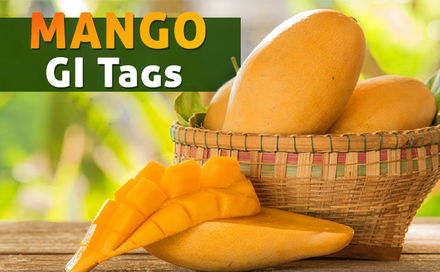
GI Tags of Mangoes: Everything about Devgad, Ratnagiri and Raigad GI Tags
Having more than 1500 varieties of mangoes, India is called as the place for finding best quality mangoes. Hapus (Alphonso), Langda, Chaunsa, Kesar, Rajapuri and a few among others are always in demand. These mango varieties are cultivated each year at rapidly growing scales. These mango varieties have great demand in national as well as international markets. If you want to get your hands on farm fresh mangoes, then purchase them online on AamWalla.com. The site not only delivers fresh quality mangoes, but also sells them for reasonable price tags. All the mangoes grown commercially in India, go through a test for its quality, distinctiveness and attribution of brand test. Geographical Indication (GI) tag is proof of where the product is born/ produced and its origin. Here’s everything you need to know about the GI tags on mango varieties, their importance, and the benefits of identification with such tags.
Also Read: Why Is It That Mangoes Are Only Available In Summer?
What is a GI tag?
Mangoes having the GI tags means that the product quality and distinctiveness have been essentially attributed as per its origin/ place of cultivation. The containment with GI tag is like a trademark or a patent for handicrafts, agricultural goods, foodstuff, and products. It not only assures the commercial vendors with product quality, but also gives a hassle free environment of identifying the best quality mangoes (for those who are new into the business). The GI certification on mangoes establishes that the product possesses certain qualities and can be trusted during the time of the purchase.
Reasons why GI tags on Mangoes are given prominence:
- It is an essential indication of Mango variety
- Indicates that these mangoes originates from a definite geographical territory
- It is identified as agriculturally natural or manufactured goods with the quality expectations
- The manufactured goods should be produced or processed or prepared in that particular territory only
- It should have a special quality or reputation or other characteristics for having an origin in the popular places
List of advantages of GI tags on Mangoes:
- GI tag ensures the quality and brand value
- GI tags prevents the unauthorized cultivation, selling of the Mangoes
- GI tag allows commercial farmers to expand their market within the legal limits
- Food products with GI tags get priority in the e-market space
- Products with GI tags always have more than average percentages of consumer trust
- GI tags on the mangoes or food products, makes it difficult for the commercial vendors who are into the business of selling fake products using the popular brand names
- GI tags enhances the growth of the state as well as farmers who roll out many efforts in productions of the mangoes
What is the validity of the GI tag on Mango?
Hapus( Alphonso) mango varieties generally have the GI tags, because varieties such as Devgad, Ratnagiri, Raigad, Sindhudurg and others have great demand in the market. Alphonso mango varieties grown in these regions are given the GI tag for its popularity upon getting checked at the regulatory entity. A registered GI tag shall be valid for 10 years and can be renewed on payment of renewal fee. Mangoes produced only within the Konkan region of Maharashtra will be called Hapus.
Which state has highest GI Tags
Every other state has its own GI tag on food products and mangoes. Karnataka is the state with highest i.e. 42 Geographical Indication tagged products in the country, which is all the efforts to popularize its food products in the real markets. As Maharashtra is popular for its Hapus (Alphonso) mango production, it uses GI tags on these varieties. Konkan region is best suited for the cultivation of Hapus and thus theGI tag is given to the mangoes grown in these regions- Devgad, Ratnagiri, Raigad Sindhudurg. This not only indicates that the mangoes available in the markets were cultivated in Maharashtra, but also prevents the illegal selling of the ordinary mango in the name of these popular varieties.
For more such updates, stay hooked on to this space.
